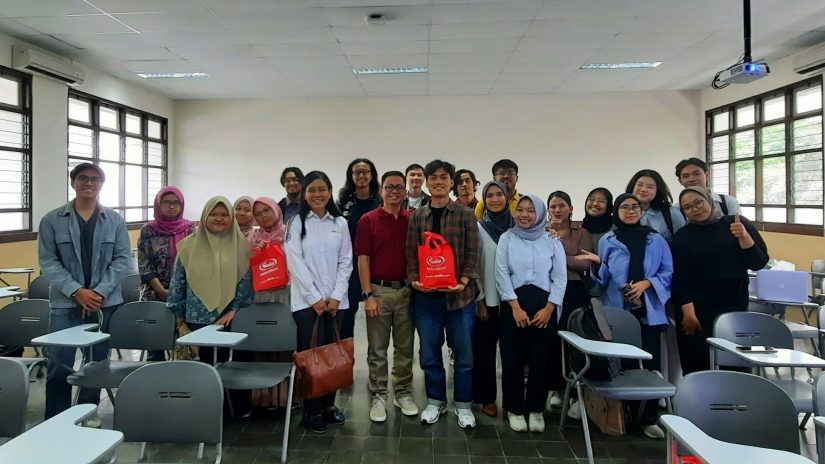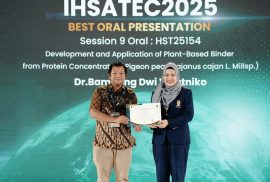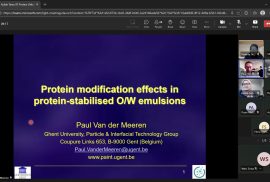
On September 9–10, 2024, the Food and Agricultural Product Technology (TPHP) Study Program at Universitas Gadjah Mada (UGM) held a guest lecture as part of the Kampus Merdeka Competition Program (PKKM), featuring Wahyu Wibowo, S.T.P., from PT Sasa Inti. The lecture was attended by undergraduate students enrolled in the Industrial Microbiology course. During the session, Wahyu Wibowo presented two main topics: Glutamic Acid Production: The Source of Umami Flavor and Tempeh Yeast Starter Production.
 Glutamic Acid Production: The Source of Umami Flavor
Glutamic Acid Production: The Source of Umami Flavor
Wahyu Wibowo delivered an in-depth explanation of the glutamic acid production process, starting from media preparation to separation and purification, to yield a high-quality final product. The fermentation process, which is prominent in glutamic acid production, was explained in detail, providing students with a thorough understanding of the technical steps used in the industry. A case study presented at the end of the lecture enriched the students’ insights by introducing real-world challenges encountered in the field.
Tempeh Yeast Starter Production
The second topic focused on the production of tempeh yeast starters, beginning with the selection of high-quality raw materials and followed by the steaming process for sterilization. Mr. Wibowo emphasized the importance of maintaining ideal incubation conditions, such as temperature and humidity, during fermentation. Accurate temperature control using modern thermometers was discussed, highlighting a shift away from conventional mercury thermometers due to contamination risks.
The drying and sterilization processes, which utilize industrial equipment such as rotary ovens and autoclaves, were also discussed to ensure product hygiene. In addition, Wahyu explained the technique of diluting pure yeast with rice flour to maintain product quality and addressed common contamination issues that often occur in the market.
The lecture highlighted the importance of innovation and quality control in the food industry, aligned with the Sustainable Development Goals (SDGs), particularly SDG 9 (Industry, Innovation, and Infrastructure) and SDG 12 (Responsible Consumption and Production). This approach aims to improve the production of safe and high-quality food, contributing to global sustainability and well-being.
Through this guest lecture, students gained valuable technical knowledge beneficial for their future careers in food technology and a deeper understanding of how industrial processes can play a significant role in meeting the world’s food needs.
Written by: Firstnandita Keisha




